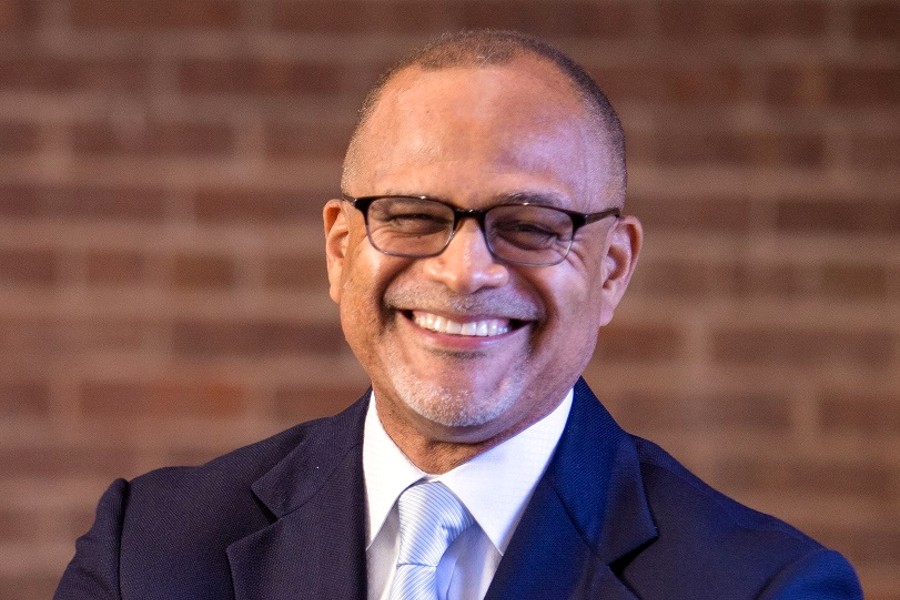 The New York City Health Department’s Center for Health Equity and the Harlem Health Advocacy Partners (HHAP) today issued a report, “Launching a Neighborhood-Based Community Health Worker Initiative,” highlighting key health priorities of public housing residents living in five East and Central Harlem NYCHA developments. The report recommends expanding the reach of the Harlem Health Advocacy Partners’ community health worker and health advocate programs to improve the health outcomes of East and Central Harlem residents. The Harlem Health Advocacy Partners and its community health worker program were launched in 2015 by the New York City Health Department’s Center for Health Equity, and community-based partners, including New York University, the City University of New York Prevention Research Center, the New York City Housing Authority (NYCHA) and the Community Service Society. To read the report visit nyc.gov/health and search for “HHAP.”
The New York City Health Department’s Center for Health Equity and the Harlem Health Advocacy Partners (HHAP) today issued a report, “Launching a Neighborhood-Based Community Health Worker Initiative,” highlighting key health priorities of public housing residents living in five East and Central Harlem NYCHA developments. The report recommends expanding the reach of the Harlem Health Advocacy Partners’ community health worker and health advocate programs to improve the health outcomes of East and Central Harlem residents. The Harlem Health Advocacy Partners and its community health worker program were launched in 2015 by the New York City Health Department’s Center for Health Equity, and community-based partners, including New York University, the City University of New York Prevention Research Center, the New York City Housing Authority (NYCHA) and the Community Service Society. To read the report visit nyc.gov/health and search for “HHAP.”
The report outlines key findings from a health needs assessment conducted at the start of the Harlem Health Advocacy Partners initiative. The findings are based on a phone survey of 1,123 residents who were ages 35 and older from five East and Central Harlem NYCHA developments: Clinton Houses, Johnson Houses, Lehman Village, King Towers, and Taft Houses. Another 55 residents with chronic conditions participated in focus groups to share their experiences. Key findings include:
- Nearly half (46%) of NYCHA residents aged 35 and older report that they are in fair or poor health. This proportion increases with age, to 58% of residents aged 65 years or older.
- Mental health emerged as a critical concern in this community. More than one quarter (27%) describe their mental health as being fair or poor.
- While nearly all NYCHA residents are insured, many experience barriers to quality care; 28% had problems with insurance in the past year, and 10% went without insurance for a period of time.
- Eighteen percent use emergency departments for regular medical care, and 14% had an instance in the past year when they needed medical care and did not receive it.
“These findings outline the need of implementing the community health worker model in neighborhoods with the highest disease burden,” said Health Commissioner Dr. Mary T. Bassett. “Through the Harlem Health Advocacy Partners program, community health workers and health advocates are able to connect residents to affordable health insurance and high quality health care from local providers.”
“Community health workers and health advocates are key to advancing health equity at the neighborhood level because they come from neighborhoods with similar structural challenges to achieving good health,” said Dr. Aletha Maybank, Deputy Commissioner and Director of the Center for Health Equity. “By having similar backgrounds and experiences to the residents and community members HHAP serves, Community Health Workers are seen as credible sources that promote social cohesion within the neighborhood.”
The report issues recommendations to improve and expand the reach of the Harlem Health Advocacy Partners’ community health worker and health advocate program. Launched in 2015, the Harlem Health Advocacy Partners’ community health worker program is a demonstration project focusing on five NYCHA developments in East and Central Harlem. The program employs twelve community health workers and health advocates and two supervisors to work with residents of Clinton Houses, Johnson Houses, Lehman Village, King Towers, and Taft Houses. The program connects residents of the target developments to social services and provide support on a range of issues including: educating residents about healthy living and disease prevention, housing advocacy, and peer support.
As part of their training, each community health worker completes a mandatory Mental Health First Aid training, a component of ThriveNYC, so that they are able to identify signs, symptoms, and risk factors of individuals who may experience distress or crisis due to mental health issues. Furthermore, community health workers are equipped to provide their clients with linkages and referrals to community-based organizations, mental health professionals, and social services in order to get them the appropriate care they need. The City has made mental health awareness and access to services a top policy priority. With ThriveNYC, an unprecedented set of 54 initiatives led by First Lady Chirlane McCray, the Health Department is raising awareness about the need to seek help while increasing mental health services across the city.
“NYCHA is honored to be a partner in the Harlem Health Advocacy Partners Project – and proud to collaborate with the Health Department as we improve quality of life for our residents,” said New York Housing Authority General Manager Michael Kelly. “Projects like HHAP connect residents to critical health services, promote resident leadership in addressing community health challenges, and provide career pathways for public housing residents in emerging preventive health fields – all of which makes our communities safer, cleaner, and more connected.”
“We are very proud to be a trusted program evaluation partner in this initiative – most especially by the communities and residents we worked so closely with in Harlem and East Harlem,” said Ayman El-Mohandes, MD, Dean of CUNY Global School of Public Health and Health Policy.
“The Community Service Society of New York applauds the Health Department for pioneering an initiative that addresses the root causes of health problems, including barriers to accessing and using health insurance coverage, through a locally-driven approach staffed by community health workers and health advocates,” David R. Jones, President and CEO of the Community Service Society. “For most vulnerable communities in New York City, the complexity of navigating the health care system and effectively understanding and using their health coverage continues to be a major impediment to leading healthy lives—and this program rights this wrong.”
“In order to determine the root cause of health disparities for public housing residents, we must know exactly what their needs are,” said Senator Jose Serrano. “I am so grateful for the results of this report as it clearly identifies the chronic diseases plaguing our community and develops a remediation plan using a community health worker model. With this plan, we can now work towards a healthier community by providing focused health resources to the residents of Harlem. Many thanks to the NYC Health Department, HHAP, NYC-CUNY PRC, CSS and NYCHA for putting this crucial report together.”
“I am heartened by the diligent work of the Harlem Health Advocacy Partners Program—and, in particular, their focus on the critical and persistent issue of health disparities in our communities. An initiative that is robustly community-based and laser-focused on bringing preventative care directly to those who need is most rightly recognizes the essential principle that our collective health is our greatest wealth. I hope the results of this program will reinforce and directly align with a universal, single-payer model of health care–in the form of New York Health–that will forever remove the destructive profit motive from the system and always place patients before profits,” said Senator Bill Perkins.
“Access to quality healthcare is a bedrock need of our communities. It prevents disease, improves quality of life and even safes lives, which is why this report is so important. Its recommendation for expanding access to care in public housing through the community health worker model will help connect residents with the resources they need to stay healthy. I thank HHAP, the Department of Health and Mental Hygiene, NYCHA, CUNY and CSS for their work on this essential report,” said Senator Adriano Espaillat.
“Community-based health care is absolutely essential if we’re to bring accessible, affordable, effective health services to every community in our City,” said Council Member Corey Johnson, Chair of the Committee on Health. “When New Yorkers don’t seek medical attention because they’re worried about their insurance, or unsure of where to go, it’s a huge detriment to them, their loved ones, and our entire City. The Community Health Worker model is an effective and efficient solution to this problem, and I could not be more supportive of the work our community health care professionals are doing. I thank Commissioner Dr. Mary Bassett, HHAP and our outstanding Department of Health and Mental Hygiene for the critical work that they’re doing on behalf of New Yorkers.”
For more information about the HHAP, visit nyc.gov/health and search “HHAP.”
Become a Harlem Insider!
By submitting this form, you are consenting to receive marketing emails from: Harlem World Magazine, 2521 1/2 west 42nd street, Los Angeles, CA, 90008, https://www.harlemworldmagazine.com. You can revoke your consent to receive emails at any time by using the SafeUnsubscribe® link, found at the bottom of every email. Emails are serviced by Constant Contact








